The project is run by a consortium of 19 partners from 8 European countries and Turkey, representing leading business, technological and research organizations, and institutions across Europe. The project coordinator Tecnalia Research & Innovation (Spain) will oversee the project’s implementation plan of 11 work packages for a duration of 4 years. The project started on 1st May 2021 and will run until 30 April 2025. The involved partners cover the whole value chain to produce Precious Metals from end-of-life products and waste.
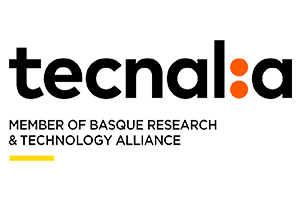
TECNALIA
Tecnalia Research & Innovation is a private, independent, non-profit applied research center of international excellence. TECNALIA is the leading private and independent research and technology organization in Spain and one of the largest in Europe. TECNALIA has one goal: to transform knowledge into GDP, meaning wealth to improve people’s quality of life by generating business opportunities for industry. TECNALIA is committed to generate major impacts in economic terms, by means of innovation and technological development, addressed by six business divisions covering the economic sectors of Energy, Environment, Industry, Transport, Construction, Health and ICT.

CRF
Centro Ricerche Fiat (CRF), founded in 1978, and part of the Stellantis N.V. Group, a multinational automotive manufacturing corporation formed in 2021, has the mission to develop and transfer innovative products, processes and methodologies in order to improve the competitiveness of its products. Through the cooperation with a pan-European and increasingly global network of more than 1700 partners from the industry and academia, CRF conducts collaborative research initiatives at the national and international levels in partnership with all the key public and private stakeholders concerned with Sustainable Mobility, targeting specifically the industrial exploitation of research.

TREEE
TREEE is a private company, a leading industrial player operating in the Italian e-waste sector with a supply chain covering every segment from the home delivery of household appliances to the collection, treatment and recycling of electrical waste. Since its establishment, the main aim of TREEE is to close the loop and find solutions for the recovery and recycling of different fractions that constitute waste of electrical and electronic equipment, especially for critical raw materials. TREEE innovative approach is addressed both to new treatment technologies and to new recycling field for waste fractions.
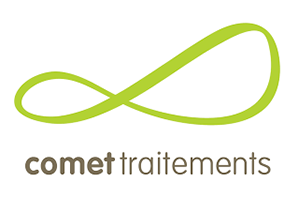
Comet
Comet Traitements (Comet) is a Belgian innovative high-growth company recycling shredder residue and the by-product of the shredding of metallic wastes. Since its creation in 2002, they have developed and industrialised more than 8 post-shredder separation and recycling processes for the recovery of non-ferrous metals, minerals, iron oxides, synthetic fuel, plastics, etc. The success of these technologies has helped Comet to build up sustainable supply chains of secondary raw materials in Belgium. In addition, it also contributes to meeting EU targets on recovery rates and secure its reputation as an industry leader.
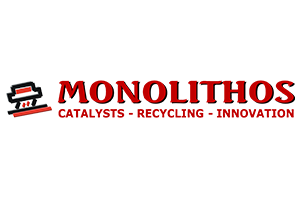
MONOLITHOS
MONOLITHOS is an independent SME and operating according to EU standards. It has a twenty-year experience in the manufacturing, regenerating, and recycling of catalytic converters. The company’s Business Network is based on 1,025 Professional Automotive Workshop Clients for aftermarket products and 1,335 Suppliers of spent automotive catalysts for recycling. Over the years, MONOLITHOS has expanded its product portfolio and currently manufactures over 300 different catalytic converters and diesel particulate filters (DPFs) for all vehicle makes and models.
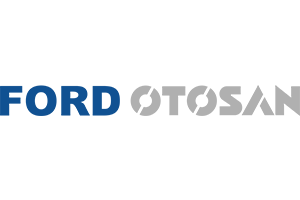
FORD OTOSAN
FORD OTOSAN is a major automotive OEM in Turkey, designing and producing heavy duty trucks, light/medium commercial vehicles, passenger vehicles and diesel engines for all these automotive applications. Founded in 1959, FORD OTOSAN has the biggest R&D center of the Turkish automotive industry, with over 1,300 engineers developing advanced technologies for global competition.
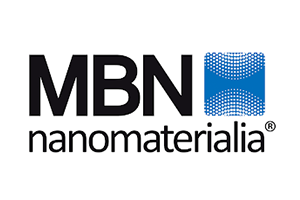
MBN
Founded in 1994 MBN Nanomaterialia (MBN) is a producer of nanostructured powder materials trough a proprietary mechano-chemical synthesis process technology (Mechanomade®). With an installed industrial production capacity of more than 100 ton/range on 8 production plants, MBN is offering to the market innovative materials that are utilized in powder metallurgy, spraying and laser deposition processes.

3DHUB
3DHUB specializes in 3D printing, scanning and designing. 3DHUB is involved in R&D and in particular on the topic of using metallic powders recovered from recycled PCB’s to develop 3D printable filaments for use in FDM 3D printers

CEINNMAT
CEINNMAT is a research-intensive private Spanish SME specialized in developing proprietary innovative technologies for material processing with microwave technology. The application of those developments to an industrial scale implies radical technical advances in materials processing, metallurgy processes and chemical synthesis, contributing to decrease the associated carbon fingerprint, the cost effective and high-quality processing.
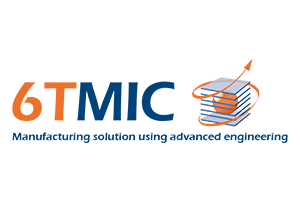
6TMIC
6TMIC is a French SME created in 2004 that specializes in innovative process engineering development and R&D management in the fields of renewable sources and sustainable development. 6TMIC is well involved in R&D French and EU industrial projects. The company gathered a big knowledge in chemical and electrochemical reactor modelling in fields of energy storage, hydrogen production, chemical conversions and CO2 capture.

ISL
ISL started in 1999 as a spin-off of the Institute for Handling Devices and Robots of Vienna University of Technology and the Austrian Society for Systems Engineering and Automation. Initially ISL´s core business are development and construction of Automated disassembly systems for electr(on)ic products, Robots in Entertainment, Distance Learning as well as teaching support. Since 2006 ISL is involved also in business development, management and strategy consultancy mainly for the IFC International Finance Corporation in the waste sector in West Balkan, India and Pakistan. In 2007 ISL started the re-use and recycling of mobile phones and became quite fast one of the leading companies in Central Europe in this sector with about 400,000 mobile phones per year.

ULiège
The University of Liège (ULiège) was founded in 1817 and counts more than 25,000 students from almost 130 nationalities. The GeMMe, a Research Unit specialized in georesources, mineral engineering and extractive metallurgy, derives its know-how from a long research tradition in primary ores mining and processing. The GeMMe actively contributes to the development of innovative processes for the efficient management of mineral and metallic resources while providing unparalleled upscaling experience in urban ore characterization and processing (with a focus on innovative sorting techniques and hydrometallurgy).

TU Delft
Delft University of Technology (TU Delft), founded in 1842, is the oldest, largest and most comprehensive university of technology in The Netherlands. TU Delft has a strong research profile with the main focus on engineering and applied sciences. The Industrial Design Engineering Faculty (IDE) is among the largest university design programmes in the world. The faculty has an integrative vision on product design. Its concern is to study, innovate and improve the development of durable products and their related services, based on the balanced interests of users, industry, society and environment.
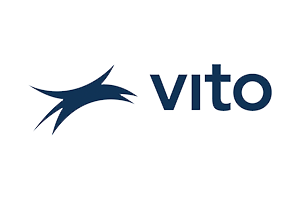
VITO
VITO (Flemish Institute for Technological Research), is a leading European independent research and consultancy center in the areas of cleantech and sustainable development, elaborating solutions for the large societal challenges of today. Sustainable chemistry, energy, health, materials management and land use: these are the five topics VITO focuses on. These topics have been set out in five research programs. They offer an answer to the challenges that mankind and society are confronted with today and in the future. Each program builds up a strong base of knowledge and skill, with added value for industry and society. The result is new and innovative research and a comprehensive range of scientific services.
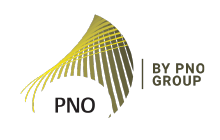
PNO INNOVATION
PNO Innovation is specialized in Innovation Management and funding, providing support services to private and public organizations in Innovation processes, Technology Transfer, IT solutions and funding for research, development and innovation. PNO is a European group, made up of a pool of around 400 professionals including scientists, engineers, consultants as well as financial and legal experts, with consolidated experience in innovation processes and funding in international working environments (Europe, Latin America, and USA).
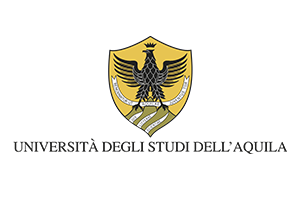
UNIVAQ
University of L’Aquila (UNIVAQ) founded in 1952 is a public teaching and research institution. It offers a full range of academic programs in the biotechnologies, sciences, economics, engineering, education, humanities, medicine, psychology, and sport sciences. With 7 departments, UNIVAQ has more than 18,000 enrolled students. Many of the university members, researchers and professors are have received international recognition and are considered leaders in their fields of research.

ISTAC
ISTAC was founded in 1994 as an economic enterprise of the Istanbul Metropolitan Municipality for waste management. The company provides services to commercial, public, and individual waste producers at international standards. ISTAC assists various ministries and government agencies in establishing policies and regulations. ISTAC specialises in solid waste management and industrial waste management. Their activities include waste identification and logistics, landfill design, construction and operation, leachate treatment, disposal of sludge, electric production from landfill gas, recovery of organic and non-organic fractions in waste, production of Refuse Derived Fuel and Solid Recovered Fuel, Solidification-Stabilization, collection and incineration/sterilization of medical waste, collection and treatment of bilge water and slope, management of construction and demolition waste, city and coastal cleaning, laboratory services, national & international consultancy services.

ADMATEC
ADMATEC is a SME, producing AM equipment for ceramics and metals, with a worldwide sales network and install base. Main products based on SLA/DLP printing built on own development machinery, process and materials.

JM
Johnson Matthey (JM) is a global leader in sustainable technologies, addressing technical challenges around transitions in transport, energy, decarbonisation, and the circular economy to help make the world cleaner and healthier. They have operations in over 30 countries and employ nearly 15000 people, of whom around 1500 work in R&D. JM has over 200 years of experience in the recycling and management of precious metals and are the largest secondary platinum group metals refiner in the world with facilities in Europe, USA, and Asia.
 This
project has received funding from the European Union’s
Horizon 2020 research and innovation programme under grant
agreement No 958302.
This
project has received funding from the European Union’s
Horizon 2020 research and innovation programme under grant
agreement No 958302.